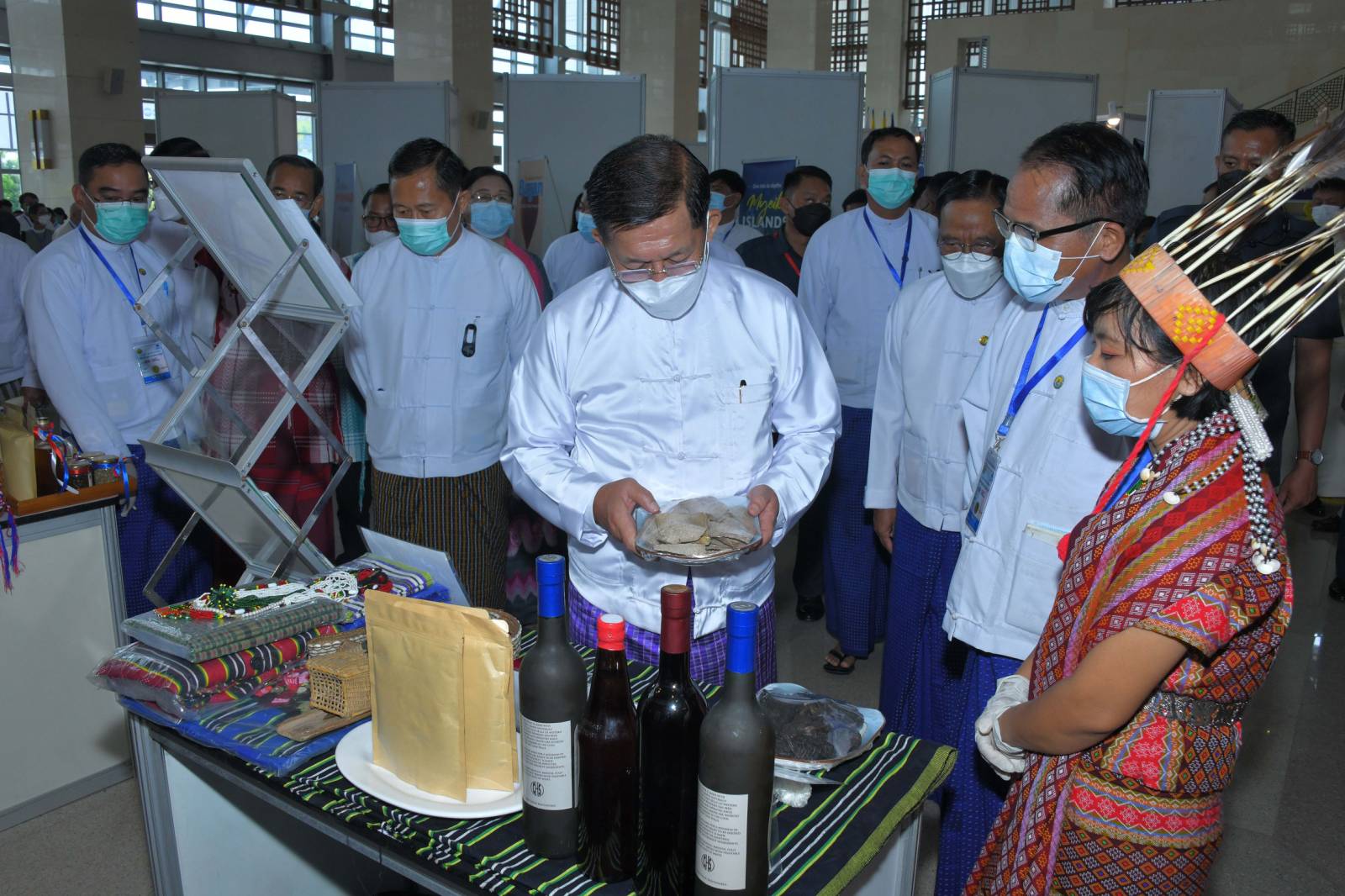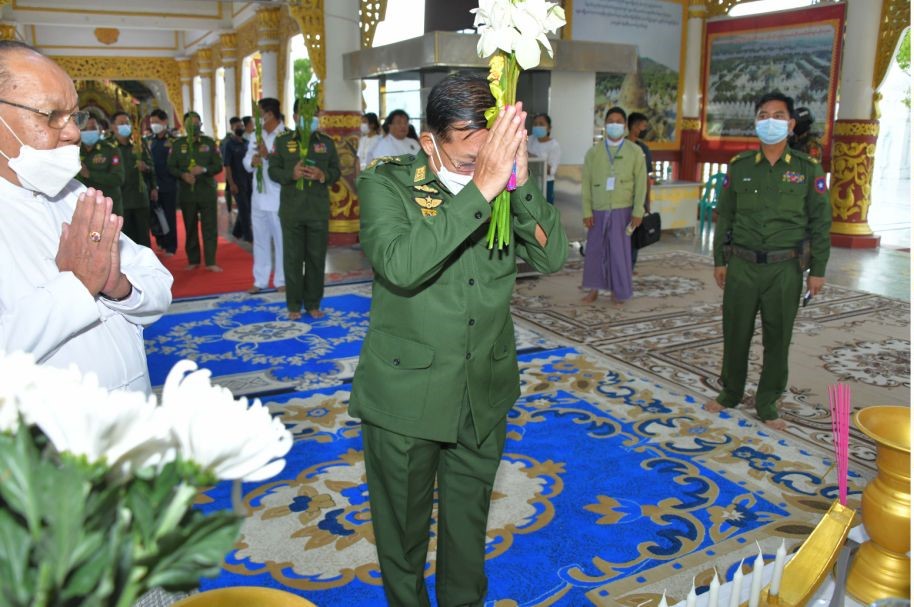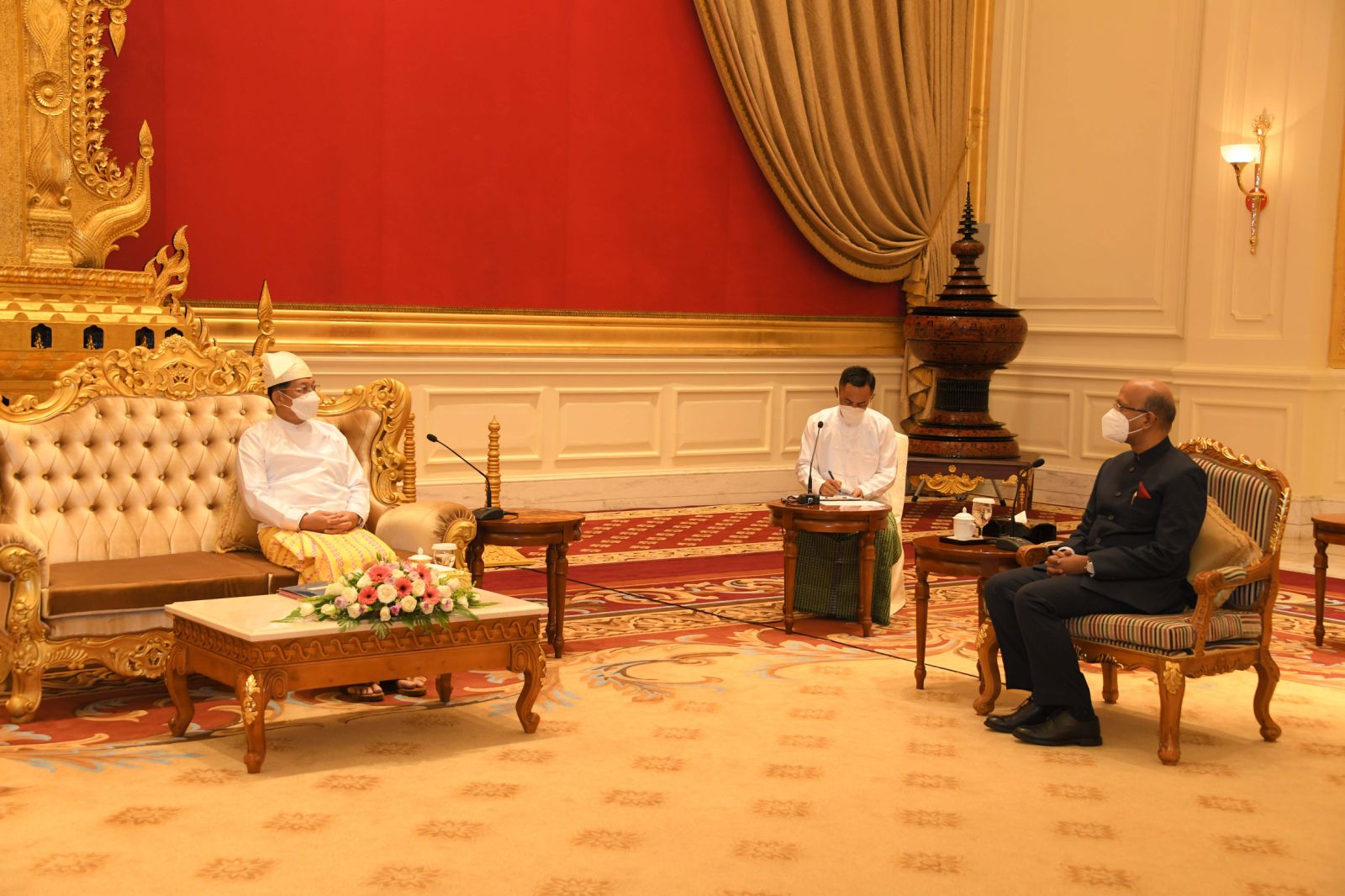Welcome to the warzone

Few normal people would want to spend their vacation in a volatile country routinely rocked by armed clashes and explosions. So when someone begins touting the potential of the tourism industry in such a place, it would be wise to take their claims with a grain of salt.
Speaking at an event to mark World Tourism Day on Tuesday, junta chief Min Aung Hlaing claimed that the domestic travel and inbound tour industries are developing in Myanmar. The Russian and Japanese ambassadors and the heads of the diplomatic missions of a number of other countries including India attended the event.
While the US government has hit Myanmar with its highest Level 4 travel advisory—“Do Not Travel”—Russia, China, India and Thailand are increasing their tourism cooperation with the regime.
After years of progress under the now ousted National League for Democracy government, Myanmar’s tourism industry was battered by the COVID-19 pandemic. In the wake of the military coup and ensuing international sanctions, it has collapsed almost entirely.
The military regime, which is starving for hard foreign currency, is desperate to reopen the sector. Knowing that travelers from Western countries will not come, it is planning to launch direct flights to and from Moscow in the hope of attracting holidaymakers from its major arms supplier, Russia. It is also arranging Russian-language courses for hotel and tourism staff, and tourist police. At the same time, regime-backed documentaries on Myanmar have been aired by a Thai military-owned broadcaster in a bid to attract travelers from the neighboring country.
Min Aung Hlaing may be optimistic that tourism will develop further in the upcoming dry season, but it will not be easy for the industry, as the end of the rainy season is also expected to bring an escalation in fighting between his junta and resistance forces.
Noose tightens on free speech
After revoking the licenses of several media outlets and putting scores of journalists and dissidents behind bars over the past year, the military regime apparently thinks its restrictions on freedom of speech still haven’t gone far enough.
At a meeting on Tuesday, the junta-controlled Information Ministry decided to impose pre-broadcast censorship on local and foreign television serials. According to the decision, the ministry will ban any content it deems politically or religiously dangerous, or that it believes undermines the culture and national solidarity or arouses sexual desire.
This is indisputably a return to the draconian censorship exercised under previous military regimes, and also means the imminent death of artistic freedom in Myanmar.
On Tuesday, a regime-controlled court sentenced prominent “sexy model” Nang Mwe San to six years in prison for “harming the culture and dignity” of Myanmar. Another top model, Thinzar Wint Kyaw, faces the same charge.
In the aftermath of the coup, the regime banned people from using satellite dishes in an attempt to restrict access to protest-related news. It also ordered pay TV operators to remove news channels like the BBC and CNN.
Meanwhile, in an indication of the kind of content the regime deems acceptable, Min Aung Hlaing has resurrected the Myanmar Traditional Cultural Performing Arts competition, which was first organized during the era of former military spy chief Khin Nyunt.
Resistance shrugs off Min Aung Hlaing’s threats

A day after junta chief Min Aung Hlaing warned of tit-for-tat reprisals for resistance attacks on the Myanmar military and police force, urban guerilla fighters ambushed a vehicle carrying political prisoners in Mandalay on Wednesday, as Min Aung Hlaing was visiting the city.
Despite the heavy security presence due to the junta boss being in town, some prisoners managed to escape over the dead bodies of two junta policemen.
And in Yangon, where the regime has tightened security following the assassination of former Brigadier-General Ohn Thwin, who was a mentor of deputy junta chief Soe Win, resistance fighters attacked police stations in Pabedan and Mingalar Taung Nyunt townships on Thursday night, inflicting casualties.
The junta chief’s barking doesn’t seem to be scaring anyone. If it did, he probably wouldn’t have found it necessary recently to impose a nighttime curfew in the administrative capital, Naypyitaw, where he lives. Many retired generals must have had sleepless nights this week after Brig-Gen Ohn Thwin was shot dead in his Yangon home on Sept. 24.
India helping junta with economic goals

In the latest sign of warming ties between India and the Myanmar junta, the world’s largest democracy is helping regime leader Min Aung Hlaing’s ambitions come true.
The regime said this week a delegation led by its Agriculture, Livestock and Irrigation Minister Tin Htut Oo visited the Indian Agricultural Research Institute, an affiliated organization of the state-owned National Seed Corporation, to acquire seeds of a variety of beans and pulses, including green gram (mung beans), which regime leader Min Aung Hlaing seeks to export as a means of pulling Myanmar’s economy out of its nosedive.
The delegation also met with representatives of the India Pulses and Grains Association (IPGA) and the Overseas Agro Traders Association (OATA) to discuss the addition of green gram to Myanmar’s bean and pulse export list, and to invite more Indian investment in Myanmar. They also met with other private companies to buy seeds for cotton and sunflower, another crop Min Aung Hlaing is pinning his hopes on to serve as a substitute for the country’s edible oil imports.
Furthermore, India continues to foster military, diplomatic and electoral ties with the regime. While Britain and Australia have downgraded their diplomatic missions in military-ruled Myanmar, Indian Ambassador Vinay Kumar presented his credentials to Min Aung Hlaing in April this year. The envoy also discussed further cooperation with the junta’s electoral body on the election the regime plans to hold next year. Both the UN and the US have warned that the poll will not be free and fair.

















